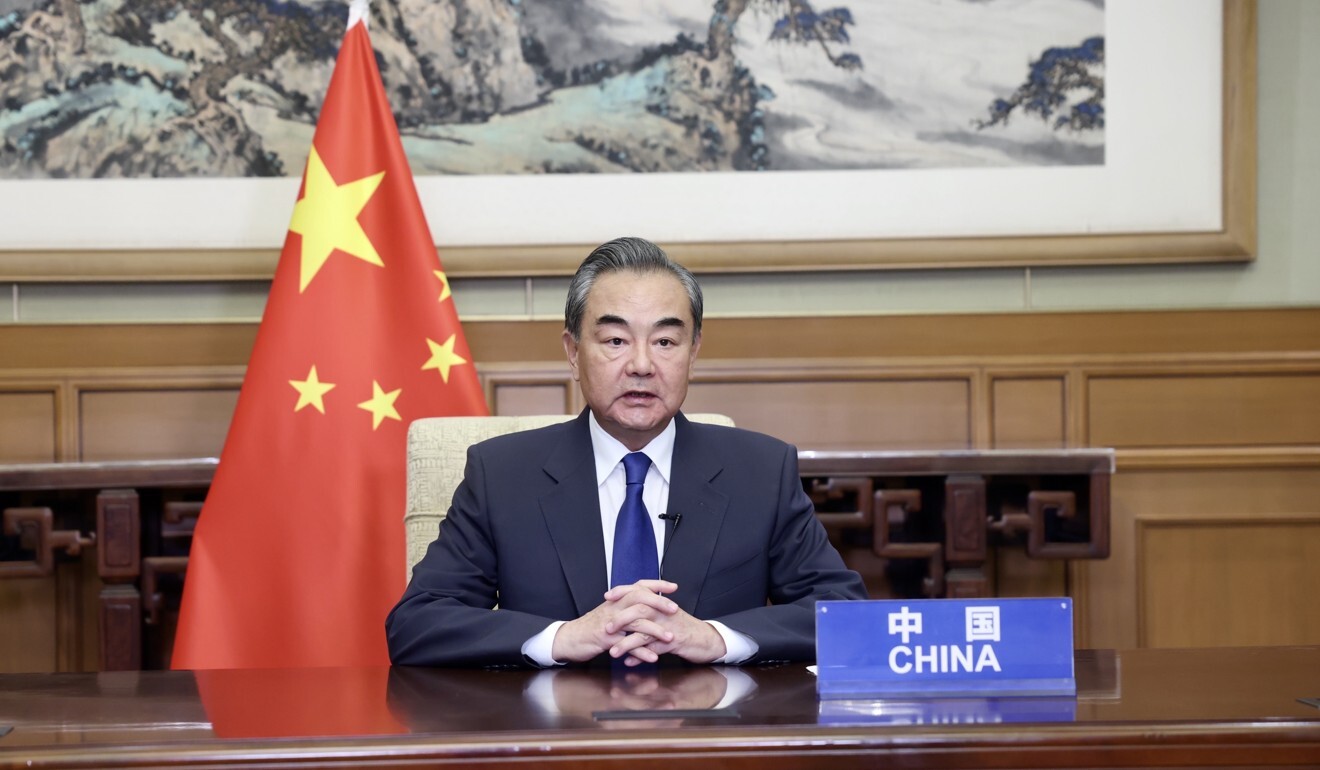
China says extremism must not be allowed to return to Afghanistan
- ‘Regional countries and the international community wish to see the future Afghan government pursue moderate Muslim policies,” China’s Foreign Minister Wang Yi tells Central Asian counterparts
- ‘Situation in Afghanistan will become even more complicated after the US leaves as there will be a reshuffle of power players,’ academic says
“[We] should not allow terrorism to flare up again in Afghanistan, and hope that [the future Afghanistan government] can develop friendly ties with its neighbouring countries and act as a stabilising force in the region,” he said at the talks in Xian, the capital of north China’s Shaanxi province.
A “political solution” was the only way to address problems in Afghanistan, the ministers said in a joint statement after the meeting.
They also called for efforts to facilitate an “Afghan-led and Afghan-owned” reconciliation process, and said foreign troops stationed there should withdraw in an “orderly and responsible way”, and avoid hasty actions.
Observers have said the withdrawal of US troops could create a strategic vacuum in the region and lead to a new power struggle, with China, India and Pakistan all jostling for influence.
“The situation in Afghanistan will become even more complicated after the US leaves as there will be a reshuffle of power players. Strategic competition will be intense,” said Pang Zhongying, a professor of international relations at Ocean University of China in Qingdao.
Pang said both China and India were keen to fill the gap left by the US, but Beijing was mindful of Afghanistan’s reputation as a “graveyard of empires” and would be reluctant to get too deeply involved.

Beijing wants to ensure Afghanistan does not become fertile ground for Uygur militants.
Foreign ministry spokeswoman Hua Chunying said on Wednesday that China would continue to work with Central Asian countries to crack down on the “three evil forces” of separatism, terrorism and religious extremism.
Li Weijian, a professor of West Asian and African Studies at the Shanghai Institute for International Studies, said China would seek to influence the situation in Afghanistan through indirect means such as the United Nations Security Council or its close ally Pakistan, which has a lot of influence over the Taliban.
Washington had left a space that would be too big to be filled by just one country, he said.
“The US is likely to maintain some form of presence in Afghanistan. No other country has the will or ability to fill the vacuum.”

